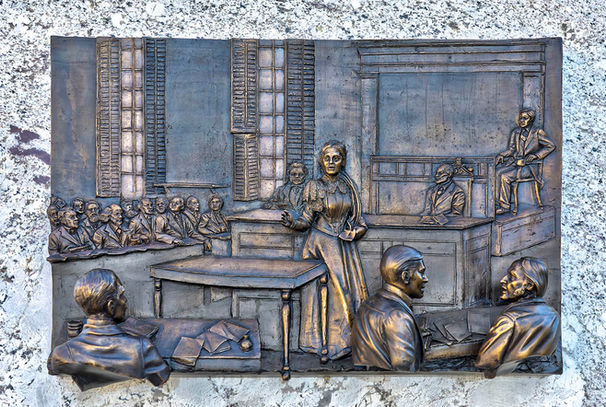Constitutional Convention of 1901
POPULISM
Through the 1870s and 1880s, depressed cotton prices brought suffering and hardship for hundreds of thousands of farm families, black and white. In the 1890s, a coalition of small farmers and industrial laborers challenged the political dominance of Alabama’s industrialists and planters, who had gained control of the state at the end of Reconstruction.
The Populists called for increased school funding, the end of the convict-lease system, assistance to farmers, and the protection of African Americans’ political rights. The combined votes of white and black Populists outnumbered those of conservative Democrats, but the Populists were defeated through election fraud and intimidation.
“We believe that every citizen, whether rich or poor, is entitled to the rewards of his labor.” The People’s Protest newspaper, Cullman County, 1893
“I have always deplored the existence of a condition in the South that seemed to make the control of the ballot by force and fraud a necessary measure.” U.S. Senator John Tyler Morgan, 1900
1901 CONSTITUTION
On the premise of promoting honest elections, Alabama elites called for a constitutional convention in 1901. The delegates preserved core features of the 1875 constitution, including low taxes, small government, and centralized control. The most significant changes in the 1901 document were a literacy test, a poll tax, and other barriers that disfranchised most blacks and many poor whites.
The new constitution was ratified in a statewide vote that relied again on election fraud. White officials in the Black Belt reported that their majority-black populations had overwhelmingly voted to disfranchise themselves. More than 180,000 black Alabamians were eligible to vote in 1900; after ratification of the constitution, only 2,980 were able to become registered voters.
Delegates to the constitutional convention in Montgomery rejected calls to accept the growing movement for women’s suffrage. On June 10, 1901, Frances Griffin argued forcefully for the vote: “So long as laws affect both men and women, men and women together should make those laws.”
Related Content at Encyclopedia of Alabama
Constitutional Convention of 1901
Alabama Equal Suffrage Association
Related Destinations
Alabama State Capitol in Montgomery
Museum of Alabama in Montgomery



